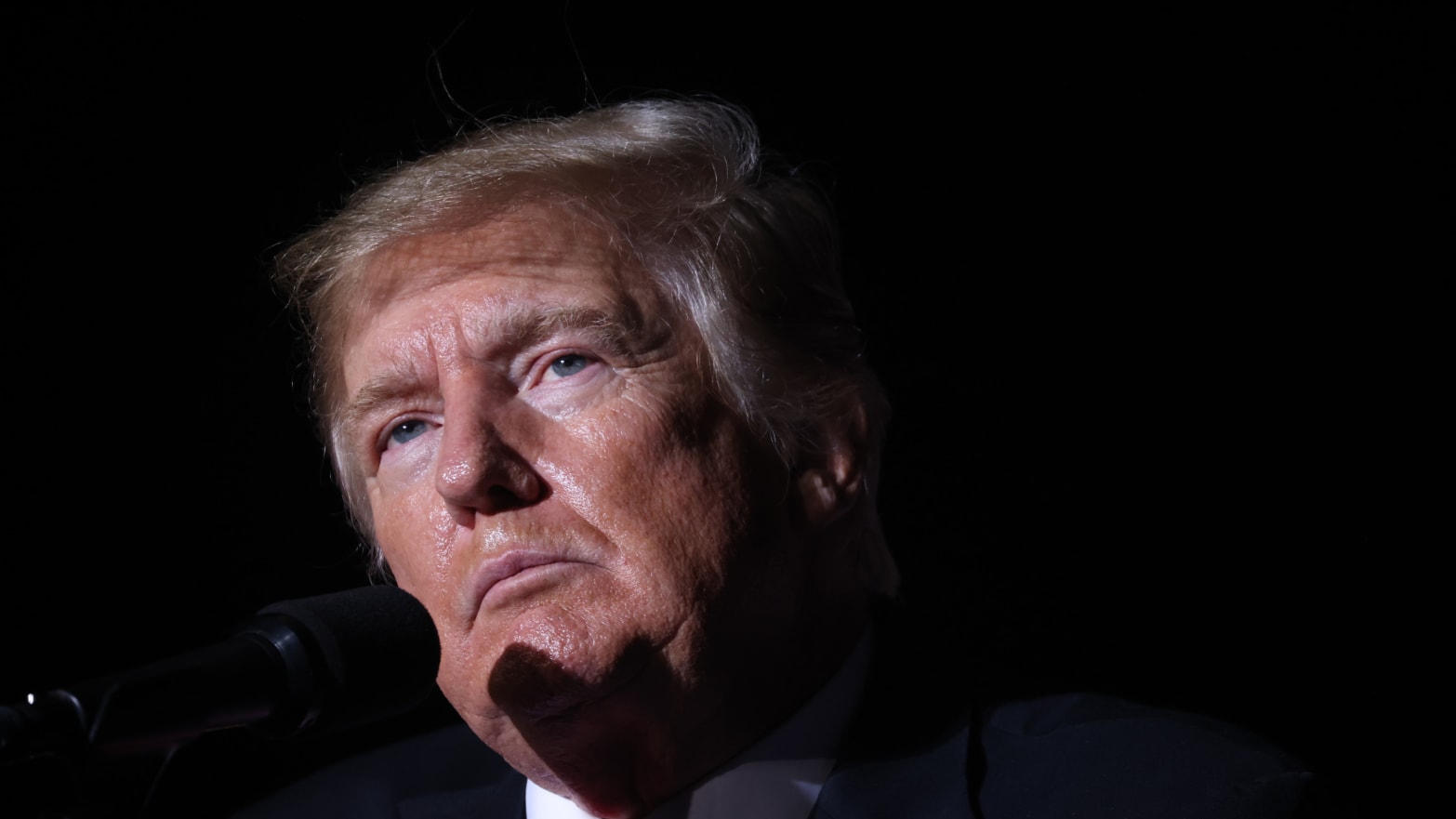Scott Olson
As former President Donald Trump seeks to keep his White House records locked away from investigators, the Jan. 6 Committee has asked the Supreme Court to not even consider Trump’s lawsuit, calling it a delay tactic that’s actively harming the panel’s ability to get to the bottom of his administration’s role in the 2021 insurrection.
“The Select Committee urgently needs the documents… each passing day handicaps [its] investigation, forcing it to proceed without the benefit of documents to which it is entitled,” the committee said in a filing on Thursday before the nation’s highest court.
The clock is ticking. As the committee noted in its 44-page court filing, the bipartisan panel is only authorized to keep working for another 12 months.
In August, the congressional panel asked the National Archives to turn over Trump White House records. But when President Joe Biden approved the transfer of documents, Trump sued, making the odd claim that a former president keeps a stash of leftover executive privilege. Trump lost when a federal judge noted he doesn’t have the power of a king. Trump lost again when an appellate panel said his argument had “no basis.” But last week, Trump asked the Supreme Court to review his case.
The House committee is trying to halt that, asking the Supreme Court to reject review—or at least speed it up as much as possible by considering the case during its next session in February.
“Such involvement would needlessly disrupt the delicate balance struck between the
branches, delay a co-equal branch’s urgent investigation into an unprecedented assault on Congress itself, and require this Court to wade into factual determinations that do not warrant its review and that are eminently correct in any event,” the committee lawyers wrote in their filing.
The entire fight is over Trump’s refusal to let a congressional committee access certain White House records. Investigators want to look over memos, calendar entries, photos, and videos that would shed light on Trump’s Jan. 6 speech near the presidential mansion in which he told a crowd to march on the Capitol building—and pressured Vice President Mike Pence to halt certifying Biden’s legitimate election victory in 2020.
Investigators also plan to review private communications between Trump and his advisers “relating to the transfer of power and obligation to follow the rule of law,” as well as suspicious, last-minute personnel changes that appeared to show Trump prepping for a coup.
While legal scholars overwhelmingly say Trump has no case, politics may play a role. A third of the nine-justice court was appointed by Trump himself.
The committee has not shied away from noting the seriousness of its investigation in the Supreme Court filing, calling the violent mob’s actions “the most significant assault on the Capitol since the War of 1812.”

